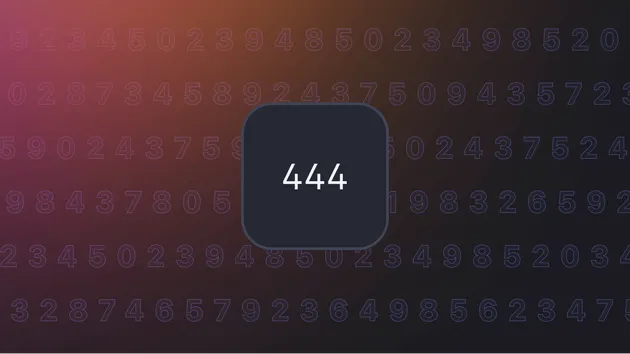JSON Record Validator
Under maintenance
Pricing
$1.00 / 1,000 results
JSON Record Validator
Under maintenance
Validates JSON records against schemas. It supports complex schemas and large datasets, providing detailed error information. The validation process can be configured to include or exclude errors, and to stop after the first error or continue to find all errors.
0.0 (0)
Pricing
$1.00 / 1,000 results
0
Total users
1
Monthly users
1
Last modified
25 days ago
You can access the JSON Record Validator programmatically from your own applications by using the Apify API. You can also choose the language preference from below. To use the Apify API, you’ll need an Apify account and your API token, found in Integrations settings in Apify Console.
{ "openapi": "3.0.1", "info": { "version": "0.1", "x-build-id": "9G74e8mtDeYmssF7A" }, "servers": [ { "url": "https://api.apify.com/v2" } ], "paths": { "/acts/utabadev~utaba-validator/run-sync-get-dataset-items": { "post": { "operationId": "run-sync-get-dataset-items-utabadev-utaba-validator", "x-openai-isConsequential": false, "summary": "Executes an Actor, waits for its completion, and returns Actor's dataset items in response.", "tags": [ "Run Actor" ], "requestBody": { "required": true, "content": { "application/json": { "schema": { "$ref": "#/components/schemas/inputSchema" } } } }, "parameters": [ { "name": "token", "in": "query", "required": true, "schema": { "type": "string" }, "description": "Enter your Apify token here" } ], "responses": { "200": { "description": "OK" } } } }, "/acts/utabadev~utaba-validator/runs": { "post": { "operationId": "runs-sync-utabadev-utaba-validator", "x-openai-isConsequential": false, "summary": "Executes an Actor and returns information about the initiated run in response.", "tags": [ "Run Actor" ], "requestBody": { "required": true, "content": { "application/json": { "schema": { "$ref": "#/components/schemas/inputSchema" } } } }, "parameters": [ { "name": "token", "in": "query", "required": true, "schema": { "type": "string" }, "description": "Enter your Apify token here" } ], "responses": { "200": { "description": "OK", "content": { "application/json": { "schema": { "$ref": "#/components/schemas/runsResponseSchema" } } } } } } }, "/acts/utabadev~utaba-validator/run-sync": { "post": { "operationId": "run-sync-utabadev-utaba-validator", "x-openai-isConsequential": false, "summary": "Executes an Actor, waits for completion, and returns the OUTPUT from Key-value store in response.", "tags": [ "Run Actor" ], "requestBody": { "required": true, "content": { "application/json": { "schema": { "$ref": "#/components/schemas/inputSchema" } } } }, "parameters": [ { "name": "token", "in": "query", "required": true, "schema": { "type": "string" }, "description": "Enter your Apify token here" } ], "responses": { "200": { "description": "OK" } } } } }, "components": { "schemas": { "inputSchema": { "type": "object", "required": [ "schema", "records" ], "properties": { "schema": { "title": "JSON Schema", "type": "object", "description": "JSON Schema to validate the records against. Can be a JSON object or a base64 encoded string containing the schema." }, "records": { "title": "Records to Validate", "type": "array", "description": "Records to validate against the schema. Be careful with large arrays as they can cause performance issues or system errors. Maximum items is 10000 depending on data size." }, "idFieldName": { "title": "ID Field Name", "type": "string", "description": "Optional field name to use as the unique identifier for each record. If not provided, the index will be used. Field must exist in the record root object." }, "includeErrors": { "title": "Include Errors in Result", "type": "boolean", "description": "If true, the validation result will include the errors from the validation process. If false or null, the errors will not be included in the result reducing output size.", "default": true }, "strictSchemaValidation": { "title": "Strict Schema Validation", "type": "boolean", "description": "If false, additional properties in the schema will not cause validation to fail. If true, additional properties will cause validation to fail.", "default": true }, "allErrors": { "title": "Validate All Errors", "type": "boolean", "description": "Validation of a record stops after the first error, which can improve performance but may not provide full error details", "default": true } } }, "runsResponseSchema": { "type": "object", "properties": { "data": { "type": "object", "properties": { "id": { "type": "string" }, "actId": { "type": "string" }, "userId": { "type": "string" }, "startedAt": { "type": "string", "format": "date-time", "example": "2025-01-08T00:00:00.000Z" }, "finishedAt": { "type": "string", "format": "date-time", "example": "2025-01-08T00:00:00.000Z" }, "status": { "type": "string", "example": "READY" }, "meta": { "type": "object", "properties": { "origin": { "type": "string", "example": "API" }, "userAgent": { "type": "string" } } }, "stats": { "type": "object", "properties": { "inputBodyLen": { "type": "integer", "example": 2000 }, "rebootCount": { "type": "integer", "example": 0 }, "restartCount": { "type": "integer", "example": 0 }, "resurrectCount": { "type": "integer", "example": 0 }, "computeUnits": { "type": "integer", "example": 0 } } }, "options": { "type": "object", "properties": { "build": { "type": "string", "example": "latest" }, "timeoutSecs": { "type": "integer", "example": 300 }, "memoryMbytes": { "type": "integer", "example": 1024 }, "diskMbytes": { "type": "integer", "example": 2048 } } }, "buildId": { "type": "string" }, "defaultKeyValueStoreId": { "type": "string" }, "defaultDatasetId": { "type": "string" }, "defaultRequestQueueId": { "type": "string" }, "buildNumber": { "type": "string", "example": "1.0.0" }, "containerUrl": { "type": "string" }, "usage": { "type": "object", "properties": { "ACTOR_COMPUTE_UNITS": { "type": "integer", "example": 0 }, "DATASET_READS": { "type": "integer", "example": 0 }, "DATASET_WRITES": { "type": "integer", "example": 0 }, "KEY_VALUE_STORE_READS": { "type": "integer", "example": 0 }, "KEY_VALUE_STORE_WRITES": { "type": "integer", "example": 1 }, "KEY_VALUE_STORE_LISTS": { "type": "integer", "example": 0 }, "REQUEST_QUEUE_READS": { "type": "integer", "example": 0 }, "REQUEST_QUEUE_WRITES": { "type": "integer", "example": 0 }, "DATA_TRANSFER_INTERNAL_GBYTES": { "type": "integer", "example": 0 }, "DATA_TRANSFER_EXTERNAL_GBYTES": { "type": "integer", "example": 0 }, "PROXY_RESIDENTIAL_TRANSFER_GBYTES": { "type": "integer", "example": 0 }, "PROXY_SERPS": { "type": "integer", "example": 0 } } }, "usageTotalUsd": { "type": "number", "example": 0.00005 }, "usageUsd": { "type": "object", "properties": { "ACTOR_COMPUTE_UNITS": { "type": "integer", "example": 0 }, "DATASET_READS": { "type": "integer", "example": 0 }, "DATASET_WRITES": { "type": "integer", "example": 0 }, "KEY_VALUE_STORE_READS": { "type": "integer", "example": 0 }, "KEY_VALUE_STORE_WRITES": { "type": "number", "example": 0.00005 }, "KEY_VALUE_STORE_LISTS": { "type": "integer", "example": 0 }, "REQUEST_QUEUE_READS": { "type": "integer", "example": 0 }, "REQUEST_QUEUE_WRITES": { "type": "integer", "example": 0 }, "DATA_TRANSFER_INTERNAL_GBYTES": { "type": "integer", "example": 0 }, "DATA_TRANSFER_EXTERNAL_GBYTES": { "type": "integer", "example": 0 }, "PROXY_RESIDENTIAL_TRANSFER_GBYTES": { "type": "integer", "example": 0 }, "PROXY_SERPS": { "type": "integer", "example": 0 } } } } } } } } }}JSON Record Validator OpenAPI definition
OpenAPI is a standard for designing and describing RESTful APIs, allowing developers to define API structure, endpoints, and data formats in a machine-readable way. It simplifies API development, integration, and documentation.
OpenAPI is effective when used with AI agents and GPTs by standardizing how these systems interact with various APIs, for reliable integrations and efficient communication.
By defining machine-readable API specifications, OpenAPI allows AI models like GPTs to understand and use varied data sources, improving accuracy. This accelerates development, reduces errors, and provides context-aware responses, making OpenAPI a core component for AI applications.
You can download the OpenAPI definitions for JSON Record Validator from the options below:
If you’d like to learn more about how OpenAPI powers GPTs, read our blog post.
You can also check out our other API clients:





